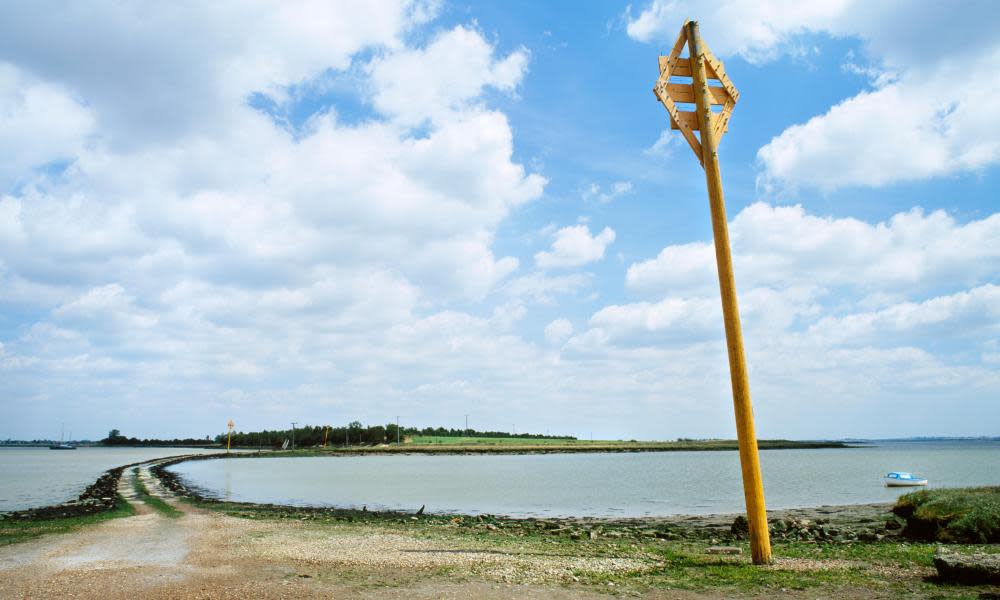'I complained bitterly throughout': Sarah Perry on how she wrote The Essex Serpent

I wrote the first draft between January and November 2014. I like to recall this as a period of effortless endeavour distinguished by ecstatic imaginative flights. I’ve been assured that in fact I complained bitterly throughout and emerged, visibly unwell, clutching a manuscript I declared unpublishable. Still: like a sundial, I only count the happy hours, and disregard this evidence.
Novelists famously bristle when asked where they get their ideas, but it’s a sensible question. I was 33, cheerfully impecunious, working as a copywriter and awaiting publication of my debut. I had no idea what my next book would be, until one afternoon, driving through the Essex countryside, I saw a sign to Henham village. “Ah,” said my husband: “The Essex serpent”, and discovering I was ignorant recounted the 17th century legend of a mysterious beast menacing the surrounding area. Instantly I experienced one of those vanishingly rare moments of inspiration which electrify the mind: what if it came back after Darwin? What if a London woman went looking for it – what if, down in Essex, there was a man of God more rational than the woman of science? Within 45 minutes I had all my major players and a good deal of the plot, and a feeling of quiet, if daunted, certainty.
I went home and wrote not a word for a year. During this time the novel acquired subplots and characters without my paying it much attention. Once I tried to contrive a plot on sheets of coloured card, an enterprise that proved useless, since I never looked at it again. I don’t write longhand or keep notebooks or scribble on napkins: aside from matters of fact, I rely on the principle that if a line is fit to make it into a novel, I’ll remember it (a sadly fallible method which I cannot recommend).
Related: The Essex Serpent by Sarah Perry review – a compulsive novel of ideas
Early in 2014 the book seemed as complete and familiar as one I’d read several times, and I could recite the opening. Clearly I could no longer avoid setting it down on paper, and so began at the beginning, and wrote – in real time, so that chapters set in June were written in the month of June – until the book concludes in autumn. I would dispose of my day job first, drafting tens of thousands of words of copy on shipping legislation or business liquidation procedures by mid-afternoon, then gratefully receding through 120 years to the Blackwater estuary. When poverty intervened and I couldn’t think much beyond the next Council Tax bill, the Arts Council awarded me a grant, leaving me so overcome I had an asthma attack.
Once the book was finished I reflected that the writing of it had given me great pleasure. My debut had been wilfully opaque: an attempt, I suppose, at the “literary”. The Essex Serpent was written to give joy as much as to provoke thought, and I still believe that novelists needn’t (indeed generally shouldn’t) choose between the two. At no point did I think the book would be a particular success. But I’d done what I’d set out to do: written about faith and superstition and friendship and desire and my poor beloved Essex – and I was as happy and content as I’ve ever been.


